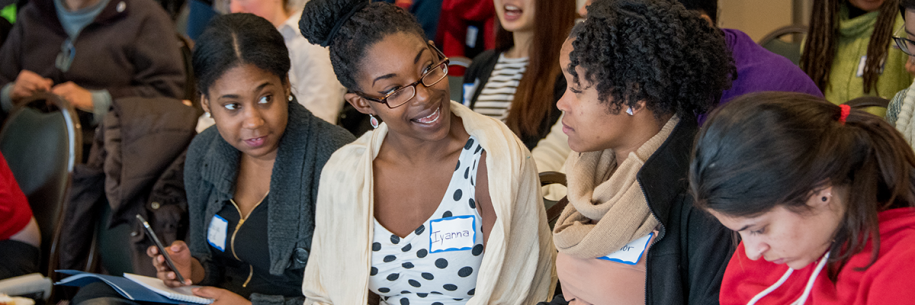
Breadcrumb
- Essential Partners
- Who We Work With
- Higher Education
- In the Classroom
The Dialogic Classroom: Open, Resilient, Inclusive

Essential Partners has equipped faculty at more than 350 colleges and universities, across humanities, social sciences, and STEM fields, with our Dialogic Classroom pedagogy, helping those educators lead more open, inclusive, civil discussions about controversial topics such as stem cell research, the role of race in American society, Israel-Palestine, and gender identity.
We call our model the dialogic classroom.
In first-year lecture classes and Ph.D. seminars, at public universities and private colleges, the benefits have been broad and deep. Research has found that the dialogic classroom:
- Improves student learning outcomes
- Fosters curiosity about the course content
- Opens students up to different or conflicting ideas
- Helps students refine their own views and values
- Encourages more students to participate in class
The dialogic classroom leads students toward that crucial balance between intellectual humility and personal conviction, open discussion and resilient belonging, which are keys both to academic rigor and the health of a free democratic society.
“One thing I’ve noticed in using dialogue is that students often know that they have a position about something, but they don’t always know why. Dialogue helps them articulate their own convictions as they develop listening skills and consider positions that may differ from their own.”
Jill DeTemple, Religious Studies Faculty
Southern Methodist University (Texas)
The building blocks of a dialogic classroom can be adapted to your course and teaching style, whether you’re teaching in a big lecture hall or a small seminar. These elements are:
- Connecting First
- Building Communication Agreements
- Putting Dialogue in the Syllabus
- Arranging the Space
- Designing Effective Questions
- Deploying Reflective Practices
- Connecting Dialogue to Content
- Evaluation
Depending on the course, you might add an online component to your dialogic classroom, or have your students lead their own dialogue on campus or in the larger community. On this website, you'll find more detailed descriptions of each key building block as well as supporting resources such as videos, exercises, lesson plans, sample syllabi, and handouts.
Get Started: Free Expert Consultation
Every campus and classroom has its unique challenges. For that reason, we have designed our Dialogic Classroom framework with an emphasis on flexibility and adaptability.
Our program team has collaborated with educators across the country and around the globe, helping them identify the right tools and interventions, sharing resources, and building relationships.
Click here to schedule a free consultation with a member of the EP program team today.

Attend a Training
Want to use dialogue in your classroom? The first step is to bring an Essential Partners training to your campus or attend an EP training.
Faculty who have participated in a dialogic classroom training receive:
- Hands-on training, customized to meet their unique needs
- Ongoing support from our expert practitioners and staff
- Membership in our online community of practice
- Opportunities for continued skill-building, online and in person
Faculty who haven’t participated in an EP training yet can still browse selected exercises, sample syllabi, videos, and other resources from our library. The resources in this section will help you understand the how, when, and why of dialogue in your classroom.
The development of Essential Partners' dialogic classroom framework was made possible by the generous support of the John Templeton Foundation and the University of Connecticut's Humility and Conviction in Public Life project. The opinions expressed in this project are those of Essential Partners and do not necessarily reflect the views of the John Templeton Foundation.
